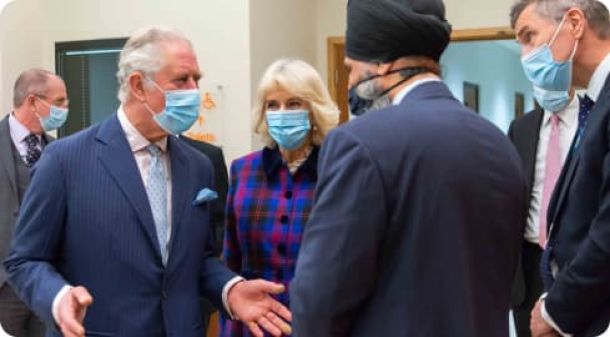
Institute of Translational Medicine officially opened

The Institute of Translational Medicine (ITM) was officially opened on Tuesday October 4 by John Clancy, Leader of Birmingham City Council.
Funded through the Birmingham City Deal and delivered by Birmingham Health Partners, the facility brings together clinical expertise, pioneering science, and academic excellence to accelerate the delivery of precision healthcare.
It aims to speed up the rate at which research can improve patient treatments and outcomes by using a multi-disciplinary, highly-collaborative approach that will include all components of the bench-to-bedside pathway.
Professor Subrata Ghosh, ITM Director said: “This world-class clinical research facility has been created out of a vision to translate science to relieve human suffering.
“It will facilitate communication and collaboration between different disciplines and expertise to solve problems and break down barriers while facilitating the rapid and cost-effective assessment of new drugs, medical devices and diagnostics.”
The ITM will incorporate research projects at the co-located Centre for Rare Diseases which runs more than 40 clinics for people from all over the UK.
BHP is a collaboration between the University of Birmingham, University Hospitals Birmingham NHS Foundation Trust (UHB), Birmingham Children’s Hospital and Birmingham Women’s Hospital.
The Rt Hon Jacqui Smith, Chair of UHB, said: “Here in Birmingham we recognised some time ago that a more joined-up approach would be vital in capturing our research capacity and excellence and turning it into improved front line treatments and devices for patients.
“Personalised medicine will become increasingly important. Bespoke care plans rather than a one-fits-all approach will be necessary.”
Professor Sir David Eastwood, Vice-Chancellor of the University of Birmingham added: “Accelerating patient access to new innovative medicines and technologies is at the heart of what we do in the Birmingham life sciences engine.
“We improve patient care and well-being by facilitating discoveries made in the laboratory and translating them into clinical practice as quickly as possible.
“Birmingham can do this at a pace, scale and efficiency which is unrivalled in the UK.
“Globally, we are one of the few cities equipped to deliver the full circle of translational medicine.”







